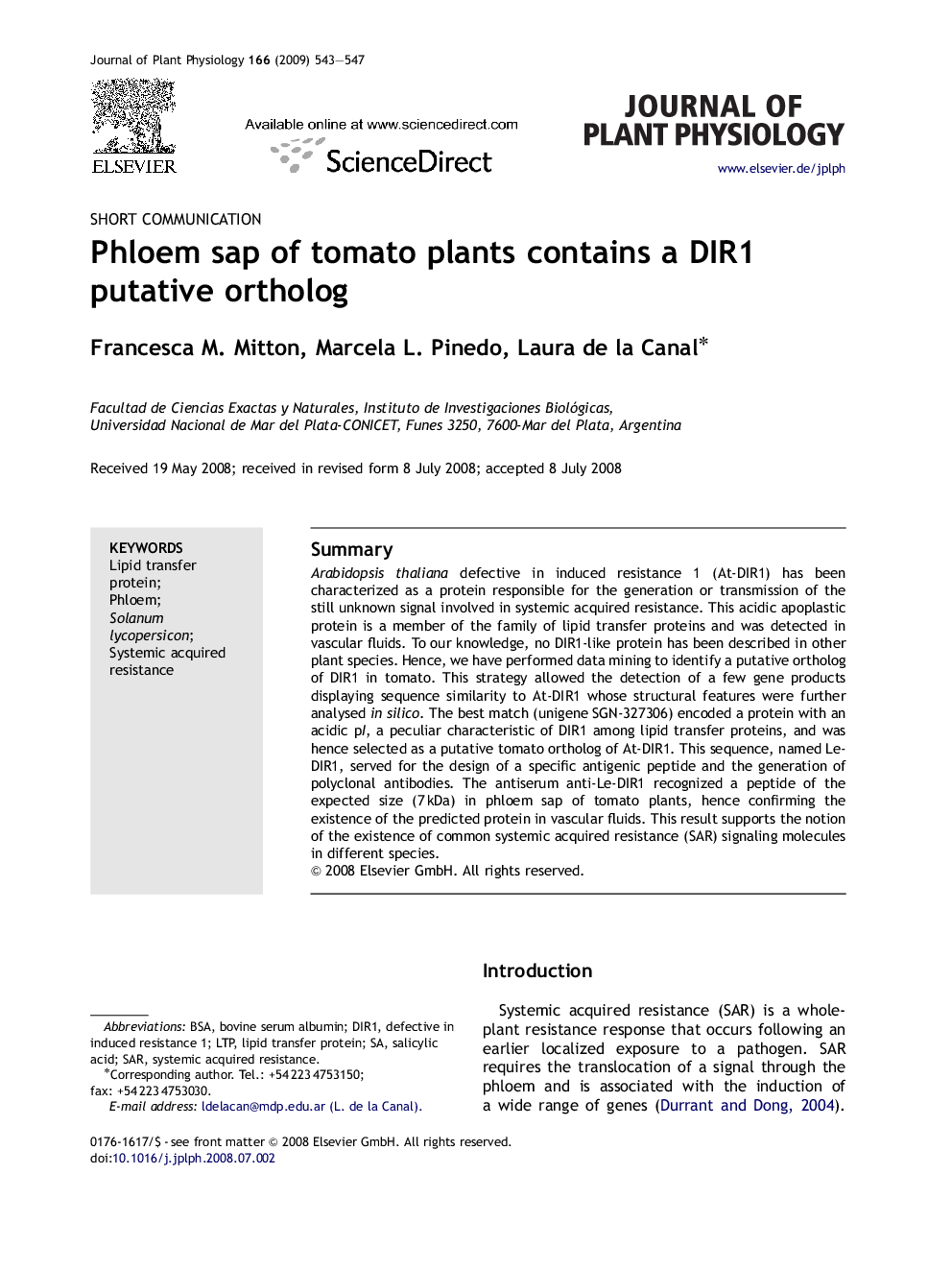| Article ID | Journal | Published Year | Pages | File Type |
|---|---|---|---|---|
| 2057954 | Journal of Plant Physiology | 2009 | 5 Pages |
SummaryArabidopsis thaliana defective in induced resistance 1 (At-DIR1) has been characterized as a protein responsible for the generation or transmission of the still unknown signal involved in systemic acquired resistance. This acidic apoplastic protein is a member of the family of lipid transfer proteins and was detected in vascular fluids. To our knowledge, no DIR1-like protein has been described in other plant species. Hence, we have performed data mining to identify a putative ortholog of DIR1 in tomato. This strategy allowed the detection of a few gene products displaying sequence similarity to At-DIR1 whose structural features were further analysed in silico. The best match (unigene SGN-327306) encoded a protein with an acidic pI, a peculiar characteristic of DIR1 among lipid transfer proteins, and was hence selected as a putative tomato ortholog of At-DIR1. This sequence, named Le-DIR1, served for the design of a specific antigenic peptide and the generation of polyclonal antibodies. The antiserum anti-Le-DIR1 recognized a peptide of the expected size (7 kDa) in phloem sap of tomato plants, hence confirming the existence of the predicted protein in vascular fluids. This result supports the notion of the existence of common systemic acquired resistance (SAR) signaling molecules in different species.
